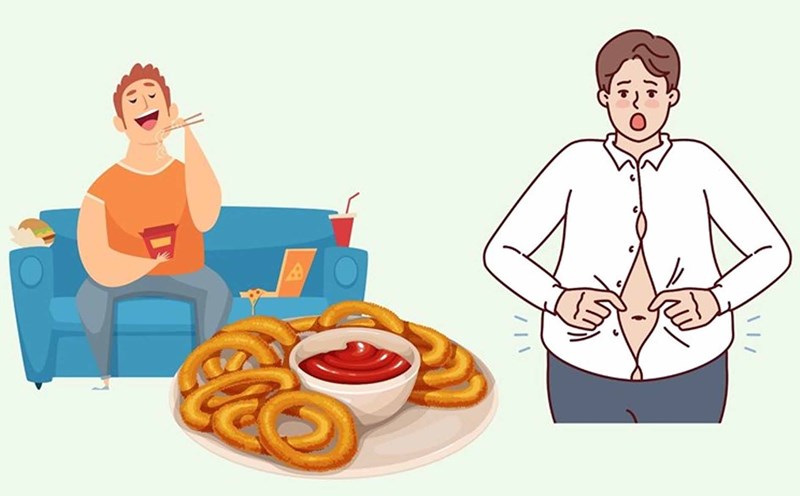"Every week, there are about 10 young men coming for examination for physiological disorders. The common point is obesity, laziness to exercise and uncontrolled eating, shared Captain, MSc. Dr. Vu Thai Hoang (Department of Urology, Military Hospital 175).
According to specialists, obesity is one of the leading factors in impaired physiological function in men, contributing to increasingly common infertility.
The harmful mechanism starts with visceral fat, the fat that produces the enzyme aromatase, converting testosterone to estrogen, causing male hormone imbalances.
As a result, sperm is weak, deformed, reduced in quantity, difficult to conceive, and even increases the risk of miscarriage and stillbirth.
Obsessed stress also destroys sperm DNA, causing damage to sex cells, warned MSc.Dr. Nguyen Ho Vinh Phuoc - Department of Andrology - Binh Dan Hospital, Ho Chi Minh City.
Meanwhile, the cost of infertility treatment is still very high and most patients have to pay for it themselves, causing many cases to give up the desire to become a father.
Not only physical effects, people with obesity often face feelings of inferiority complex, anxiety, depression - further disrupting hormones and prolonging the disease cycle.
Dr. Tra Anh Duy - Men's Health Center commented that many people are still subjective and think that obesity only affects aesthetics or metabolism.
In fact, signs of early-stage male dominance are very "silent": reduced cravings, fatigue, disorder, difficulty concentrating - easily confused with stress or work pressure.
"Many male friends are only 18-25 years old have erectile dysfunction, premature ejaculation, and poor sperm even without any pathology - other than obesity," Dr. Duy shared.
The good news is that the right weight loss can significantly improve fertility.
Some studies have recorded that after 8 weeks of scientific weight loss, sperm count can increase by more than 40%. If you maintain a stable weight, sperm quality will also improve sustainably.
However, if the condition persists, testicular damage may not fully recover.
Experts warn that popular habits today such as sitting too much, eating fast food, staying up late, drinking soft drinks, alcohol, smoking, using stimulants... all contribute to promoting physiological decline and the ability to become a father.
Many young people living in modern urban areas are passive, lack exercise, and eat excess calories - which are harming their reproductive health without their knowledge, said Dr. Vu Thai Hoang.











